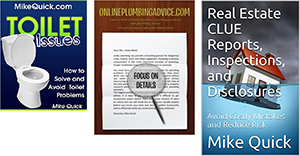Be Prepared and Avoid Fear
Be prepared to be Safe
In 2010, Wayne LaPierre published a book titled Safe: How to Protect Yourself, Your Family, and Your Home. Research gathered from that book and from other places can help people be prepared to be safe.
Preparation is better than fear. Self-reliance is better than total dependence on government authorities to protect you. In 2020, as people watched unchecked violence and dis-regard for law and order, many decided to replace fear with preparation.
Your Family Disaster Plan is important.
The Red Cross and Federal Emergency Management Agency (FEMA) jointly issued a brochure titled Your Family Disaster Plan. This brochure provides four important steps to help people to be prepared to be safe.
Step 1: Know what emergencies or disasters are most likely to occur in your community.
Step 2: Develop a Family Disaster Plan and Practice it.
Step 3: Assemble an Emergency Preparedness Kit.
Step 4: Ensure that at least one family member is trained in basic First Aid and CPR/AED (Automatic External Defibrillator).
It’s important to focus on the disasters you worry about the most.
Sadly, in 2020, many worry about home security and intruders. Sadly, many fear that the disaster most likely to occur in their community is home invasion. Security cameras, pepper spray
and guns seem important in 2020.
Plans to avoid and plans to defend are important in 2020.
Safe storage and handling of protective equipment is most important. Proper training, selection and securing of guns and other protective equipment is important.
Often, security cameras and other things can get criminals to select other easier targets. Ring Doorbells, motion activated lights
and other security matters.
If deadly force is necessary to defend yourself or your family, be prepared to stop and help criminals with necessary emergency training.
Safety requires research, training, the best equipment and practice.
Local emergency management offices or your local American Red Cross chapter can answer important questions.
Here are some good questions:
- What types of disasters are most likely to occur in my community? Please provide information on how to prepare for each type of disaster.
- Are there specific warning signals in place to alert my family in an emergency?
- Are there special programs in place for disabled or elderly persons in the event of a disaster, and how can I help disabled or elderly persons in my neighborhood?
- What are the policies for animal care during and after a disaster?
Avoid fear by being prepared.
To be prepared during “looting”, “arson” and other risks of bodily harm, sometimes, lethal defense measures become necessary. Local governments cannot always provide a safe community. Lawyers and other legal advisers can provide details concerning what people can and cannot do to defend themselves, their family and their home. It is important to focus on legal details before emergency situations occur.
To be prepared to be safe is to be best at research, training and preparation. It is always best to avoid fear by knowing you are prepared to make decisions in a split second.

